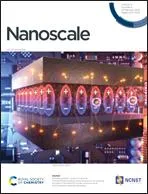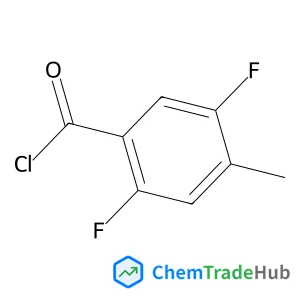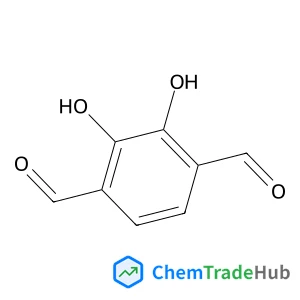A practical and highly sensitive C3N4-TYR fluorescent probe for convenient detection of dopamine
文献情報
Hao Li, Manman Yang, Juan Liu, Yalin Zhang, Yanmei Yang, Hui Huang, Yang Liu, Zhenhui Kang
The C3N4-tyrosinase (TYR) hybrid is a highly accurate, sensitive and simple fluorescent probe for the detection of dopamine (DOPA). Under optimized conditions, the relative fluorescence intensity of C3N4-TYR is proportional to the DOPA concentration in the range from 1 × 10−3 to 3 × 10−8 mol L−1 with a correlation coefficient of 0.995. In the present system, the detection limit achieved is as low as 3 × 10−8 mol L−1. Notably, these quantitative detection results for clinical samples are comparable to those of high performance liquid chromatography. Moreover, the enzyme-encapsulated C3N4 sensing arrays on both glass slide and test paper were evaluated, which revealed sensitive detection and excellent stability. The results reported here provide a new approach for the design of a multifunctional nanosensor for the detection of bio-molecules.
関連文献
IF 6.367
Life cycle assessment of plasma-assisted ethylene production from rich-in-methane gas streamsIF 6.367
In situ growth of all-inorganic perovskite nanocrystals on black phosphorus nanosheetsIF 6.222
CaMoO4 nanosheet arrays for efficient and durable water oxidation electrocatalysis under alkaline conditionsIF 6.222
From Douglas fir to renewable H2-enriched syngas via ex situ catalytic pyrolysis over metal nanoparticles–nanocellulose derived carbon catalystsIF 6.367
Novel aqueous amine looping approach for the direct capture, conversion and storage of CO2 to produce magnesium carbonateIF 6.367
Selective production of monocyclic aromatic hydrocarbons from ex situ catalytic fast pyrolysis of pine over the HZSM-5 catalyst with calcium formate as a hydrogen sourceIF 6.367
Retraction: Chemical synthesis and antigenic activity of a phosphatidylinositol mannoside epitope from Mycobacterium tuberculosisIF 6.222
Chemoproteomics-based target profiling of sinomenine reveals multiple protein regulators of inflammationIF 6.222
An overview of latest advances in exploring bioactive peptide hydrogels for neural tissue engineeringIF 6.843
掲載誌
Nanoscale

Nanoscale is a high-impact international journal, publishing high-quality research across nanoscience and nanotechnology. Nanoscale publishes a full mix of research articles on experimental and theoretical work, including reviews, communications, and full papers. Highly interdisciplinary, Nanoscale appeals to scientists, researchers and professionals interested in nanoscience and nanotechnology, quantum materials and quantum technology, including the areas of physics, chemistry, biology, medicine, materials, energy/environment, information technology, detection science, healthcare and drug discovery, and electronics. For publication in Nanoscale, papers must report high-quality reproducible new work that will be of significant general interest to the journal's wide international readership. Nanoscale is a collaborative venture between the Royal Society of Chemistry Publishing and a leading nanoscience research centre, the National Center for Nanoscience and Technology (NCNST) in Beijing, China. image block The journal publishes weekly issues, complementing and building on the nano content already published across the Royal Society of Chemistry Publishing journal portfolio. Since its launch in late 2009, Nanoscale has established itself as a platform for high-quality, cross-community research that bridges the various disciplines involved with nanoscience and nanotechnology, publishing important research from leading international research groups.
おすすめサプライヤー
 株式会社ニロ
株式会社ニロ 芜湖市トーマスバイオテクノロジーカンパニー
芜湖市トーマスバイオテクノロジーカンパニー 軒諾科(泰興)薬物開発有限公司
軒諾科(泰興)薬物開発有限公司 TIGERコーティングGmbH & Co. KG
TIGERコーティングGmbH & Co. KG Estates City Bangcheng Chemical Co., Ltd.
Estates City Bangcheng Chemical Co., Ltd. スタインハウス
スタインハウス 東莞市創昇機械設備有限公司
東莞市創昇機械設備有限公司 Trenka Industriebedarf Handelsgesellschaft m.b.H
Trenka Industriebedarf Handelsgesellschaft m.b.H Cialisreiwa Karyo Co., Ltd.
Cialisreiwa Karyo Co., Ltd. 三菱化学株式会社
三菱化学株式会社











![57423-71-9 - (1R,2R,4R,6S,11R,12S,15R,18S,19R,20S,21S,23R,26R)-15-Hydroxy-11,18,21-trimethyl-5,17,24,28,29-pentaoxanonacyclo[17.9.1.1~1,20~.0~2,12~.0~4,6~.0~6,11~.0~15,19~.0~18,23~.0~21,26~]triacont-8-ene-10,16,25
,30-tetrone 57423-71-9 - (1R,2R,4R,6S,11R,12S,15R,18S,19R,20S,21S,23R,26R)-15-Hydroxy-11,18,21-trimethyl-5,17,24,28,29-pentaoxanonacyclo[17.9.1.1~1,20~.0~2,12~.0~4,6~.0~6,11~.0~15,19~.0~18,23~.0~21,26~]triacont-8-ene-10,16,25
,30-tetrone](/structs/574/57423-71-9-78dc.webp)

![24449-39-6 - 2,2,2',2'-Tetramethyl-2H,2'H-5,5'-bibenzo[h]chromene-6,6'-diol 24449-39-6 - 2,2,2',2'-Tetramethyl-2H,2'H-5,5'-bibenzo[h]chromene-6,6'-diol](/structs/244/24449-39-6-3118.webp)
